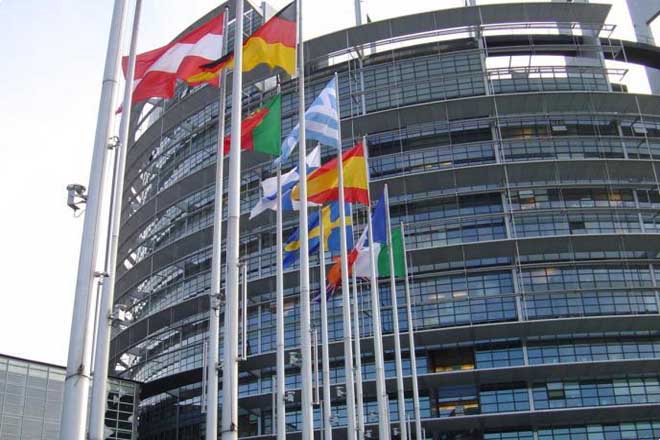The European Parliament is set to approve a controversial agreement between the European Union and the US on sharing banking data after securing key guarantees on privacy, a leading member of the assembly said Thursday.
At stake is access to the SWIFT database, a Europe-based private consortium which records financial transactions. Last year EU states agreed the US could use it to track suspect terrorist financing, but the parliament struck down the deal in February over concerns about privacy.
Alexander Alvaro, a German liberal EU deputy who is in charge of steering parliament's new report on the deal, said in a statement that "a breakthrough was reached" on a revised version of the deal "after though negotiations."
A key concession obtained by the assembly is the stationing of at least one EU official alongside SWIFT personnel working in the US Treasury, in order to supervise the handing over of financial data to US investigators.
"These results are unique in the history of the European Parliament," Alvaro crowed.
A draft deal concluded last week by the European Commission, the executive body which conducted negotiations on behalf of the EU, only allowed for indirect supervision, with officials watching over SWIFT's actions from the EU's territory.
As that provision was considered insufficient, the commission was forced to reopen talks on the issue, bowing to pressure from parliamentarians and some EU member states.
In a recognition of parliament's assertiveness, the commission's top home affairs bureaucrat, Jonathan Faull, told lawmakers on Thursday that the EU executive was pushed into a "frankly humiliating" position.
The rejection of the first version of the SWIFT deal in February was seen as a showcase of the assembly's increased powers under the Lisbon treaty, the EU's new rulebook which came into force last December.
Parliament's criticism focused on the fact that SWIFT technology does not allow for suspicious transactions to be singled out from bulk data, meaning that there is no way to prevent information relating to innocent EU citizens from being transferred and stored in the US for up to five years.
The commission said last week that US information requests are to be "tailored as narrowly as possible" and will be checked by Europol, the EU's police coordination agency. But the fundamental issue of bulk data transfer could not solved.
To overcome the problem, EU lawmakers extracted a commitment from the commission and EU member states that a SWIFT-data-extraction process would be set up in Europe, so that US authorities would no longer receive information in bulk.
The commission is to provide "a legal framework" within one year, while the entire system should be operational within three years, a parliamentary source told the German Press Agency dpa.
But parliament's main political groups - social democrats, liberals and conservatives - backed down on requests to strike down the entire SWIFT agreement, due to last for five years, unless the three-year deadline for setting up the EU data-extraction system was respected.
That angered smaller political parties, with German Green Jan Philipp Albrecht saying that "the majority of the parliament is giving away any possibility to sustain the pressure on Council (of EU governments), Commission and US government to solve the problem of bulk transfers."
EU states are expected to give their blessing to the deal on Monday, while parliamentarians should vote on it on July 7, during a week of plenary meetings in Strasbourg, France.
Alfredo Perez Rubalcaba, Spanish Interior Minister and a representative of the EU's rotating presidency, said it was important to proceed "as quickly as possible," for the sake of EU-US anti-terrorism cooperation.






